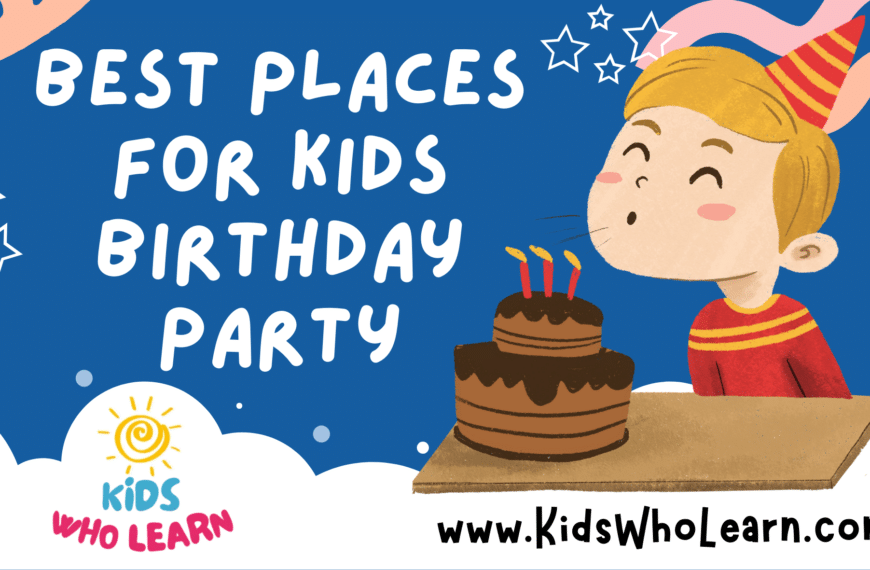Telling your kids about Santa can be a tricky conversation to have. You want to preserve the magic and wonder of the holiday season, but you also don’t want to deceive your children or set them up for disappointment later on. So, how do you navigate this conversation in a way that is honest, age-appropriate, and still fun?
Understanding the concept of Santa is an important first step. Santa Claus is a beloved figure in Western culture, known for bringing gifts to children on Christmas Eve. However, the specifics of his story can vary widely depending on where you live and your family’s traditions. Some children believe that Santa is a real person who lives at the North Pole with his elves and reindeer, while others understand him to be a symbol of the holiday spirit. Whatever your family believes, it’s important to be clear about the message you want to convey to your kids.
Preparing for the conversation can help you feel more confident and prepared. Think about what you want to say and how you want to say it. Consider your child’s age and personality, and choose a time when they are relaxed and receptive. You might also want to have some books or movies on hand that can help reinforce your message. Remember, this conversation is not just about Santa – it’s an opportunity to talk about the values and traditions that are important to your family.
Key Takeaways
- Understanding the concept of Santa can help you navigate the conversation with your kids.
- Preparing for the conversation can help you feel more confident and make the experience more positive for everyone involved.
- Remember that the conversation is not just about Santa – it’s a chance to talk about what the holiday season means to your family.
Understanding the Concept of Santa
As a parent, explaining the concept of Santa Claus to your children can be a tricky task. Here are some guidelines to help you navigate this conversation.
History of Santa Claus
Santa Claus, also known as Saint Nicholas, has a long history that dates back to the 4th century. Saint Nicholas was a bishop who lived in what is now modern-day Turkey. He was known for his generosity and gift-giving, especially to children. Over time, the story of Saint Nicholas evolved into the legend of Santa Claus that we know today.
Santa Claus in Popular Culture
In popular culture, Santa Claus is often depicted as a jolly, rotund man in a red suit who delivers presents to children on Christmas Eve. This modern-day version of Santa Claus was popularized in the 1800s by the poem “A Visit from St. Nicholas,” which is also known as “The Night Before Christmas.”
It’s important to note that while Santa Claus is a beloved figure in many cultures, not all families celebrate Christmas or believe in Santa Claus. It’s important to respect and honor everyone’s beliefs and traditions.
When explaining the concept of Santa Claus to your children, it’s important to emphasize that Santa Claus is a symbol of generosity and kindness. While he may not be a real person, the spirit of Santa Claus lives on through the act of giving and helping others. Encourage your children to embrace this spirit of generosity and kindness, not just during the holiday season, but throughout the year.
Preparing for the Conversation
Telling your child that Santa Claus isn’t real can be a difficult conversation to have, but it’s important to approach it in a way that’s respectful and age-appropriate. Here are some tips on how to prepare for the conversation:
Choosing the Right Time
It’s important to choose the right time to have the conversation with your child. You don’t want to do it when your child is already upset or stressed about something else. It’s also important to make sure that you have enough time to have the conversation without feeling rushed.
Choose a time when your child is calm and relaxed, and make sure that you have their full attention. It’s also a good idea to have the conversation in a private setting where you won’t be interrupted.
Gauging Your Child’s Understanding
Before you have the conversation, it’s important to gauge your child’s understanding of Santa Claus. Younger children may still believe in Santa Claus, while older children may already have their suspicions.
Ask your child what they think about Santa Claus, and listen carefully to their response. This will give you a better idea of how to approach the conversation and what kind of language to use.
It’s also important to be honest with your child. Don’t try to sugarcoat the truth or make up elaborate stories to explain why Santa Claus isn’t real. Instead, be straightforward and explain the truth in a way that your child can understand.
Having the Conversation
When it comes to telling your kids about Santa, it’s important to approach the conversation with care and consideration. Here are a few tips to help you navigate this tricky topic.
Explaining the Tradition
The first step in having the conversation is to explain the tradition of Santa Claus. You can start by telling your kids about the history of Santa, including how the legend of Santa Claus began and how it has evolved over time. You can also talk about how Santa has become a beloved symbol of the holiday season, and how many people enjoy the tradition of leaving cookies and milk out for Santa on Christmas Eve.
Addressing Their Questions
Once you’ve explained the tradition, your kids may have questions about Santa Claus. It’s important to be honest and open with them, while also being sensitive to their feelings. Here are a few common questions your kids may ask, along with some tips for how to answer them:
- “Is Santa real?” This is probably the most common question kids ask about Santa. While you don’t want to lie to your kids, you also don’t want to spoil the magic of the holiday season. You can tell your kids that Santa is a symbol of the holiday season, and that many people enjoy pretending that he’s real. You can also talk about how the spirit of Santa lives on through acts of kindness and generosity.
- “How does Santa deliver presents to everyone in one night?” This is another common question kids ask about Santa. You can explain that Santa has a team of elves who help him make toys, and that he has a magic sleigh that can travel around the world in one night. You can also talk about how the spirit of Christmas is about giving, not just receiving.
By approaching the conversation with care and consideration, you can help your kids understand the tradition of Santa Claus while also preserving the magic of the holiday season.
Dealing with Reactions
When you finally tell your kids about Santa, you should be prepared for their reactions. Here are some tips on how to deal with both positive and negative reactions.
Positive Reactions
Your child might be excited and happy about the news. Here are some things you can do to support them:
- Acknowledge their excitement and joy
- Encourage them to continue to enjoy the magic of Christmas
- Emphasize the importance of giving and kindness during the holiday season
- Reassure them that Christmas will still be a fun and special time for the family
Negative Reactions
On the other hand, your child might be upset or disappointed when they find out that Santa isn’t real. Here are some things you can do to help them cope:
- Acknowledge their feelings and let them express their disappointment
- Remind them that the magic of Christmas doesn’t come from Santa, but from spending time with loved ones and giving to others
- Encourage them to find joy in other holiday traditions and activities
- Reassure them that it’s okay to be sad or disappointed, but that they will still have a fun and special holiday season with the family.
Remember, every child is different and will react differently to the news about Santa. Be patient and understanding, and offer your support and love as they process this new information.
Moving Forward
Now that you’ve had the conversation with your child about Santa, it’s time to think about how to move forward. Here are a few ideas to help you keep the magic of the holiday season alive while also being honest with your child.
Keeping the Magic Alive
Just because your child knows the truth about Santa doesn’t mean you have to stop enjoying the magic of the season. Here are a few ways to continue the fun:
- Emphasize the Spirit of Giving: Talk to your child about the importance of giving to others, especially during the holiday season. Encourage them to participate in charitable activities like toy drives or volunteering at a local food bank.
- Create New Traditions: Start new traditions that don’t revolve around Santa. Decorate cookies, go caroling, or have a family game night. These activities can create lasting memories for your child.
- Read Holiday Stories: There are plenty of holiday stories that don’t center around Santa. Find some books that focus on the spirit of the season and read them together as a family.
Involving Them in the Tradition
If your child is still interested in Santa, you can still involve them in the tradition. Here are a few ways to do that:
- Let Them Help: Involve your child in the gift-giving process. Let them help wrap presents or pick out gifts for family members.
- Write Letters: Encourage your child to write a letter to Santa, even if they know he’s not real. This can be a fun way for them to express their holiday wishes.
- Watch Holiday Movies: There are plenty of holiday movies that feature Santa. Watch them together as a family and enjoy the magic of the season.
Remember, the most important thing is to be honest with your child while also keeping the magic of the holiday season alive. With a little creativity, you can still make the holidays special and memorable for your family.
Frequently Asked Questions
When is it appropriate to tell your child the truth about Santa?
It’s best to wait until your child is ready to hear the truth about Santa. Some children may start questioning Santa’s existence around the age of 6 or 7, while others may believe in Santa for a few more years. You know your child best, so trust your instincts and wait until you feel they are ready to hear the truth.
How do I explain to my child that Santa isn’t real?
Be honest and straightforward with your child. Explain that Santa is a fun character that people pretend exists to make the holiday season more magical, but that he isn’t a real person who delivers presents. Emphasize that the joy of the holiday season comes from spending time with loved ones and giving to others, not from receiving gifts from Santa.
What do I say to my child if they ask if Santa is real?
If your child asks if Santa is real, it’s important to be honest with them. You can explain that Santa is a character that people pretend exists to make the holiday season more magical, but that he isn’t a real person who delivers presents. Emphasize that the joy of the holiday season comes from spending time with loved ones and giving to others, not from receiving gifts from Santa.
How can I make the transition from believing in Santa to understanding the truth easier for my child?
Make sure your child knows that it’s okay to feel disappointed or sad about the truth about Santa. You can help ease the transition by emphasizing the joy of spending time with loved ones and giving to others during the holiday season. You can also create new traditions or activities that your child can look forward to each year, such as baking cookies or making ornaments.
What are some fun ways to incorporate the spirit of Santa without perpetuating the myth?
You can still incorporate the spirit of Santa into your holiday traditions without perpetuating the myth. For example, you can encourage your child to write letters to Santa, but explain that you will read and respond to the letters instead of Santa. You can also read books or watch movies about Santa as a fun way to celebrate the holiday season.
How do I handle it if my child is upset about finding out the truth about Santa?
If your child is upset about finding out the truth about Santa, validate their feelings and let them know that it’s okay to feel disappointed or sad. Emphasize the importance of spending time with loved ones and giving to others during the holiday season. You can also create new traditions or activities that your child can look forward to each year, such as baking cookies or making ornaments.







